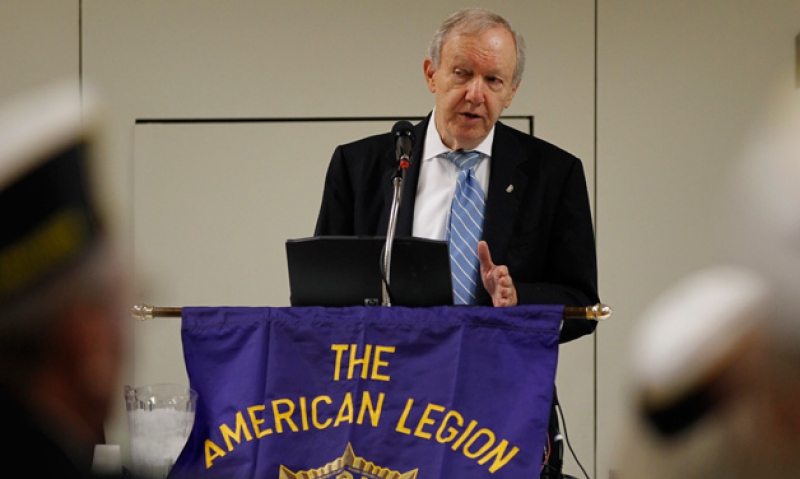
VA has signed up 80,000 veterans but needs 920,000 more by 2019.
The Million Veterans Program (MVP) is an ambitious initiative of the Department of Veterans Affairs to register 1 million veterans in a comprehensive data-collection program that will study the effects that genes have in causing and predicting diseases.
Veterans who sign up for MVP will give a blood sample to VA and have the option to get a free health assessment, said Dr. Joel Kupersmith, addressing The American Legion National Convention on Aug. 25. Kupersmith, VA"s chief research and development offiicer, said extreme precautions are being taken to ensure the security of participants’ health records. The MVP program will also link Electronic Health Record data with the department’s Genomic Information System for Integrated Science.
A pilot MVP program was launched on Jan. 1, 2011, at nine VA sites nationwide; now there are 40. As of Aug. 13, more than 80,000 veterans have signed up for the program. Although that figure is far from the 1-million enrollment goal, Kupersmith is optimistic, since 60 percent of those veterans contacted so far have signed up.
Kupersmith said that 21 percent of veterans who signed up were not contacted by VA; they heard about the program from other sources, decided it was a good thing and volunteered. “This shows something about the altruism of veterans," Kupersmith said. "They look upon it as a form of service.”
VA wants to get 1 million veterans into the program in the next five to seven years.
Speaking at The American Legion’s Veterans Affairs & Rehabilitation Commission meetin, Kupersmith also provided updates on VA research in post-traumatic stress disorder (PTSD) and traumatic brain injury (TBI).
VA currently is conducting large-scale studies on PTSD, including one that examines its relationship to military sexual trauma. Another study is evaluating the effectiveness of prolonged exposure therapy in treating PTSD. The effectiveness of alternative medicine also is being studied, including meditation, acupuncture and light therapy.
Long-term studies include the effects of PTSD on Vietnam War veterans (including women), and its effects on veterans of more recent wars.
Recent VA research has demonstrated the differences between men and women who suffer from PTSD; women have higher depression rates and men have higher rates of alcohol abuse.
Rehabilitation for TBI, Kupersmith said, actually is changing and improving the way the brain operates. VA research also is looking at treatments for pituitary gland damage, which can have far-reaching effects. “The pituitary gland sits on the base of the skull and is like the commander-in-chief of all the other glands in our body,” Kupersmith said.
Recent VA research shows that veterans with TBI are almost twice as likely to be at risk for suicide. A suicide-prevention program is now in its planning stage. Kupersmith said VA and the Department of Defense are collaborating on more joint studies of TBI.
At the end of his update, Kupersmith was asked a question by William Detweiler, a past national commander of the Legion who chairs its ad hoc committee on PTSD/TBI. Referring to VA’s study of alternative medicine, Detweiler asked whether hyperbaric oxygen treatment had been included.
Kupersmith replied that VA is doing a study with DoD on such treatment, and that the Food and Drug Administration has issued warnings about its use.
Detweiler asked for information on why FDA had issued such a warning, and Kupersmith agreed to provide it.
The Legion’s ad hoc committee has been gathering information on best practices and treatments for PTSD and TBI, and should be issuing its final report in the fall.
- Convention

